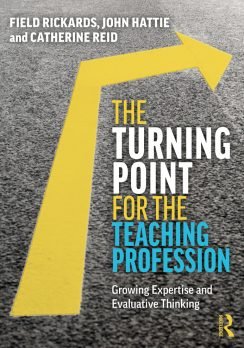My reason for reviewing this book was to see if it might contain any useful lessons for SLTs.
Read MoreReview: Strange Code: Esoteric Languages That Make Programming Fun Again
Given how much there already is to cover in the computing curriculum, why spend time exploring programming languages that are, so to speak, way off the beaten track?
Read MoreReview: Science Fiction: Voyage to the Edge of Imagination
My review of this book has recently been published in Teach Secondary magazine. I thought some readers might be interested in spotting the differences between the published version, and the copy I submitted.
Read MoreReview of the hieroglyphs exhibition
Taking place at the British Museum in London, the exhibition could be used to provide interesting perspectives or links to several subjects — including programming.
Read MoreVideo by Terry Freedman — nothing to do with the exhibition, but I thought it looked science fictiony.
Review of a science fiction exhibition
There’s a great science fiction exhibition on at the Science Museum in London at the moment — until 4 May 2023. Science |Fiction is a great medium for discussing technology…
Read MoreReview: The Science of Learning
Evidence-based education tends to be regarded in much the same way as Oscar Wilde viewed advice: useful for other people.
Read MoreReview: The power of professional learning networks: full review
The idea of professional learning networks, or PLNs, has been around a long time. So what is there to say about them with regard to teachers’ professional development and wellbeing?
Read MoreReview: 20 Things to do with a computer (full review)
Back in 1971, when computers in schools were barely conceivable, Seymour Papert and Cynthia Solomon produced a revolutionary paper. Reproduced in this book, their Twenty Things to Do with a Computer introduced teachers to the idea that programming could be used to engage children, release their creativity and still learn stuff.
Read MoreReview: The turning point for the teaching profession -- full review
Given that the government has laid down what must be taught, periodically pontificates on the ‘best’ teaching methods, goes so far as to indicate a preference for particular resources and has appointed an external organisation to oversee quality control, can teaching be truly thought of as a profession?
Read MoreReview: My secret #edtech diary (full review)
It is a sad confirmation that the trope that education lacks any sort of collective memory is in fact well observed.
Read MoreReview: Teaching Machines: The history of personlized learning
Here is a very strange paradox. On the one hand, everyone agrees that a key ingredient for success in life is having great teachers. On the other, there’s a relentless narrative that education is somehow broken and that fixing it entails replacing teachers or transforming some or all of what they do.
Read MoreReview: Breaking the news -- exhibtion
It is easy to believe that ‘fake news’ is a modern phenomenon, brought about by social media and promulgated by politicians. Yet as the British Library’s event, ‘Breaking the News’ exhibition demonstrated, fake news – or that unforgettable phrase ‘alternative facts’ – have been features of news reporting for at least 500 years.
Read MoreReview: The Complete Learner's Toolkit (Full review)
I was underwhelmed by a book with lofty ambitions that delivers little more than a compendium of interesting lesson ideas.
Read MoreReview: YEAR ONE: Lighting the path on your first year in teaching
I reviewed this book for Teach Secondary magazine. I’ve included both the review I sent in, and the lightly edited version that was published in the magazine.
Read MoreTerry Freedman and bookcase, by Terry Freedman
Fake news?
I’ve compiled a number of reviews of non-fiction books that either deal with helping people detect untruths (such as in so-called scientific research) or presenting something as true when, in fact, it isn’t.
Read MoreBook review: Brave New World -- the graphic novel version
in some respects, Brave New World seems closer to our lived reality than does Orwell’s 1984.
Read MoreReview: The Neurobiology of Learning and Memory
This book differs from many of the books and articles I’ve read about memory because it delves into the physical changes that occur in different situations.
Read MoreReview: Support Not Surveillance: How to solve the teacher retention crisis
Dr Bousted makes a strong case for major reform of the parts of the education system in England that has a direct impact on teachers – and therefore on students.
Read MoreBooks to be reviewed #3: Climate Change for Dummies
This is another book to be reviewed for Teach Secondary magazine.
Read MoreQuick looks: Tools for Teachers, by Oliver Lovell
Overall the book is a good investment, although I did have some quibbles with it.
Read More




